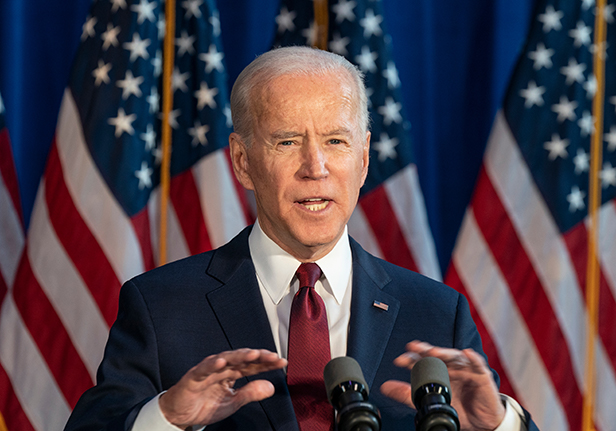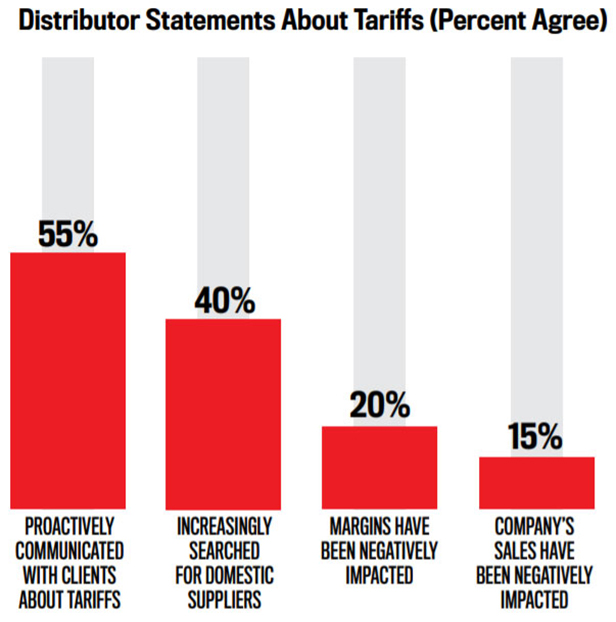News December 03, 2020
Biden: No Immediate Plan to Nix Trump Tariffs
The levies on imported goods from China directly affected the promotional products industry, causing price increases on some products and other issues.
President-elect Joe Biden said in an interview with The New York Times that he has no immediate plans to remove the tariffs that President Donald Trump’s administration imposed on approximately $370 billion worth of imported goods from China.

The majority of products sold in the North American promotional products industry are made in China. Trump’s levies on imported goods from China directly affected promo, causing price increases on some products, accelerating a movement to diversify sourcing to other countries and other issues.
Biden also told columnist Thomas L. Friedman of The New York Times that he plans to leave in place, at least for a time, the Phase 1 agreement that Trump forged with China. That deal requires Beijing to buy roughly $200 billion in additional U.S. goods and services during 2020 and 2021, though China is behind the pace for living up to the bargain.
My column: Biden: ‘We’re Going to Fight Like Hell by Investing in America First’ https://t.co/qx4qTYVS0P
— Thomas L. Friedman (@tomfriedman) December 2, 2020
Before deciding how to proceed on China and tariffs, Biden revealed to Friedman that he wants to review the current agreement with Beijing and strategize with the United States’ traditional allies in an effort to form a unified, “coherent” approach to dealing with China.
“China’s leaders had their issues with Trump, but they knew that as long as he was president, the United States could never galvanize a global coalition against them,” Friedman wrote. “Biden’s strategy, if he can pull it off, will not be welcome news for China.”
While the particulars remain to be determined, Biden said his goals for a China strategy would be to “pursue trade policies that actually produce progress on China’s abusive practices — that’s stealing intellectual property, dumping products, illegal subsidies to corporations” and forcing “tech transfers” from American companies to their Chinese counterparts.
Biden also noted that he doesn’t plan to enter into a new trade agreement with China until there is implementation of a viable strategy for government-led investments into American research and development, infrastructure and education so the nation can better compete with China.
While Trump’s tariffs did prompt price increases on some imported-from-China promo products and shake up some companies’ supply chains, there wasn’t an overwhelming impact on sales to end-clients. Only 15% of distributors said the tariffs had a negative effect on sales, according to Counselor’s 2020 State of the Industry report. And, in 2019, with the tariffs in place, distributors tallied a record year for collective sales, with revenue reaching $25.8 billion.

For all the worry about tariffs driving up the costs on imported goods from China and hurting sales, the impact has been fairly minor.
During the wide-ranging interview with Friedman, Biden also stated that a top priority will be getting a robust stimulus package through Congress to combat the damaging economic effects that the coronavirus pandemic has had on American households and businesses. Biden said he would like to achieve this even before he takes office in January.
On Tuesday, Dec. 1, some federal lawmakers from the Republican and Democratic sides of the aisle unveiled a newly proposed $908 billion economic stimulus package that would have included about $288 billion in small business aid such as Paycheck Protection Program (PPP) loans. Soon after, however, Republican Senate Majority Leader Mitch McConnell shot down the proposal. Still, there was some talk among Congressional leaders that the plan could be used as the basis for further negotiations.
Hey #promoproducts pros: Another $288 billion in small business relief / #PPP loans could be on the way under a proposal fed lawmakers introduced today: https://t.co/ZRN9qEmgB8 @Melissa_ASI @asicentral @ASI_MBell
— Chris Ruvo (@ChrisR_ASI) December 1, 2020
